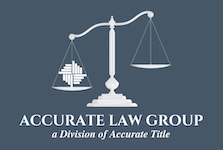A 1031 exchange is a way to postpone taxes when selling one property and buying another. It applies to business or investment real estate. When utilized properly, it can lead to significant savings. This blog provides the benefits of 1031 tax deferred exchanges in Southern NH.
Types of Properties that Qualify
You must possess a qualified property before considering a tax deferred 1031 exchange. Qualified properties are those used in a business/trade or for investment. They can include rental, land, residential, industrial, and commercial real estate. You must also plan to purchase like-kind property that is also qualified.
Benefits Of 1031 Tax Deferred Exchanges In Southern NH
Normally, when you sell an investment property, capital gains taxes apply to profits from the sale. This applies despite what the funds are used for afterwards. Taxes may be owed to the federal government and local state. Based on how long you held a property and the amount of equity, the taxes owed may be quite large. A 1031 exchange allows you to put the equity from one property towards the purchase of a new like-kind property and defer capital gains taxes until you sell that new property. Of course, another 1031 exchange can be an option on that future property to delay taxes even further.
Preparing for a 1031 Exchange
There are different components to a 1031 exchange that you should understand BEFORE selling a qualified property. 1031 Exchanges can not be performed after the fact. You must plan to perform an exchange when you list qualified real estate for sale. Very exact timelines must be observed to execute the exchange. This includes deadlines for selecting and buying replacement property. A qualified intermediary must also be employed to manage the exchange and funds. If a step or deadline is missed, all tax savings will be void. Speak with an experienced 1031 exchange consultant for detailed guidance on 1031 exchanges and to reap the full benefits of 1031 tax deferred exchanges in Southern NH.

